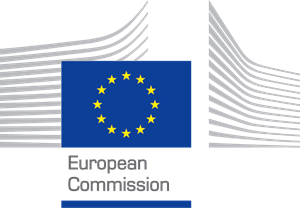Digital tools towards circular biobased technical textiles.

BIOFIBRELOOP: Circular biobased technical textiles with innovative bio-inspired non-toxic functionalization.
EU’s industry is pushed by EC‘s green deal to convert into a net-zero industry, accelerate the transition to climate neutrality and drive its resilience. As an important part of the EU manufacturing industry, the EU’s textile sector is thus called to action and to reach the next level of disruptive innovations in sustainable textiles.
BIOFIBRELOOP is a business-driven consortium of twelve partners from small to large industry and scientific institutes set to meet such challenges by deploying a new generation of renewable, recyclable, bio-inspired materials made of lignin, cellulosic and polylactic acid at TRL 7. The innovation addresses the outdoor/active/workwear industry and aims to result in circular, technical textiles made from biopolymers with innovative bio-inspired non-toxic functionalization.
BIOFIBRELOOP demonstrates breakthrough technologies and pave the way for market entry:
- Near to zero waste biomimetic functionalization through circularity;
- Zero use of hazardous chemicals;
- Satisfied consumer needs through smart functionality for hydrophobicity, oil repellency, self-cleaning, and antibacterial.
In 3 industrial demo sites, biomimetic functionalization and recycling of the bio-based materials is proven at large at TRL7. These are based on processes owned by partners and brought in at TRL4 e.g. lignin-based thermoplastic coating, laser-based technology for surface structures in bio-based textiles, thermomechanical recycling of PLA and lignin-based textile materials to serve as valuable secondary raw materials. At the project’s end, a patented circular, sustainable and safe process is validated and demonstrated at a large scale to generate brand-new renewable, recyclable and functionalized materials.
Our main tasks
- Identification of operational parameters and design of BioFibreLoop digital twin DT baseline.
- Digital Twin (DT) model construction.
- Optimisation of DT through machine learning (ML) and data-base models.
- Simulation and validation of DT framework.
- Deployment of open Virtual Replication Tool based on DT.
- Economic cost-benefit analysis assessment.
Partners
ALPHANOV | BAT GRAPHICS | BEES BE ENGINEERS FOR SOCIETY | FREYZEIN | GERMAN INSTITUTES OF TEXTILE AND FIBER RESEARCH DENKENDORF | IDENER.AI | IMEC | KNOPF'S SOHN | NEXT TECHNOLOGY TECNOTESSILE | NIL TEXTILE | STEINBEIS | VTTStart date – finish date
06 / 2024 - 11 / 2027

This project has received funding from the European Union’s Horizon 2020 research and innovation programme under grant agreement Nº 101130603

